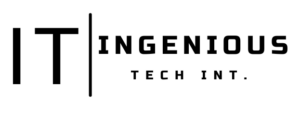Key Takeaways
Home security has come a long way, evolving from medieval fortifications to modern, technology-driven systems that protect your home efficiently.
Before investing in a security system, conduct a risk assessment to identify vulnerabilities and common security threats, including burglary and identity theft.
A comprehensive home security system comprises both exterior and interior measures, including high-quality locks, security cameras, alarm systems, and smart automation features.
When selecting a home security system, consider factors such as your budget, home size, lifestyle, and local crime rates, and decide between professional or DIY installation.
Installing a security system can lead to insurance discounts and streamline the claims process, making it a valuable investment for homeowners.
Home security is a top priority for homeowners today. Ensuring the safety of your loved ones and your property is essential.
In this article, we will delve into the essential components of home security, helping you make informed decisions to protect your home.
Understanding Home Security
Home security has evolved significantly over the years. Understanding its historical context and evolution is crucial to appreciate the importance of modern security systems.
In ancient times, home security meant fortifying castles and constructing moats. Fast forward to the present, and it involves advanced technologies to safeguard homes.
Today, home security is more accessible and effective than ever. The evolution includes not only the hardware but also the strategies used to deter potential threats.
Essential Home Security Components
Effective home security involves both exterior and interior measures. Let’s explore them in detail.
Exterior Security
- High-Quality Locks and Deadbolts: High-quality locks and deadbolts are top-tier security devices, known for their durability and resistance to tampering, offering robust protection for your doors and property.
- Security Cameras: Security cameras are surveillance devices that capture video footage to monitor and enhance the security of homes, businesses, and public spaces.
- Motion Sensor Lighting: Motion sensor lighting is an automated lighting system that activates when it detects motion nearby, providing illumination and enhancing security while saving energy.
Interior Security
- Alarm Systems: Alarm systems are security devices that emit audible and visual alerts when triggered, helping to deter intruders and notify homeowners or authorities of potential threats.
- Window and Door Sensors: Alarm systems deter intruders and notify of threats with audible and visual alerts, enhancing security and safety.
- Safes: Interior security safes provide a secure storage solution for protecting valuable belongings within your home or business.
- Smart Locks: Smart locks are high-tech door locks that can be controlled and monitored remotely using a smartphone or other devices, offering convenience and enhanced security.
- Smart Lighting: Smart lighting in home security refers to automated lighting that can be controlled remotely or programmed to enhance security measures, such as motion-activated lights that deter intruders.
- Smart Thermostats: Smart thermostats in home security are devices that allow you to control and monitor your home’s temperature remotely, ensuring comfort and energy efficiency while also enhancing security features.
Conclusion
In a world filled with uncertainties, having a robust home security system provides peace of mind. Choose the components that best suit your needs and protect what matters most.
FAQs
How can I determine the right budget for my home security system?
Assess your needs, consider your budget, and explore different security options to find a system that fits your financial plan.
What are the advantages of professional installation for a home security system?
Professional installation ensures proper setup, reduces the risk of errors, and often comes with expert advice on the best placement for security devices.
Can I install security cameras on my own, or should I seek professional help?
Many security cameras are designed for DIY installation, making it possible for homeowners to set them up without professional assistance.
Do security systems effectively deter burglars and intruders?
Yes, security systems are highly effective deterrents. They not only protect your property but also create a perception of risk, discouraging potential intruders.
How do security systems impact my home insurance premium?
Having a security system can lead to insurance discounts, potentially reducing your premium costs. It also streamlines the claims process, making it more efficient in case of an incident.


